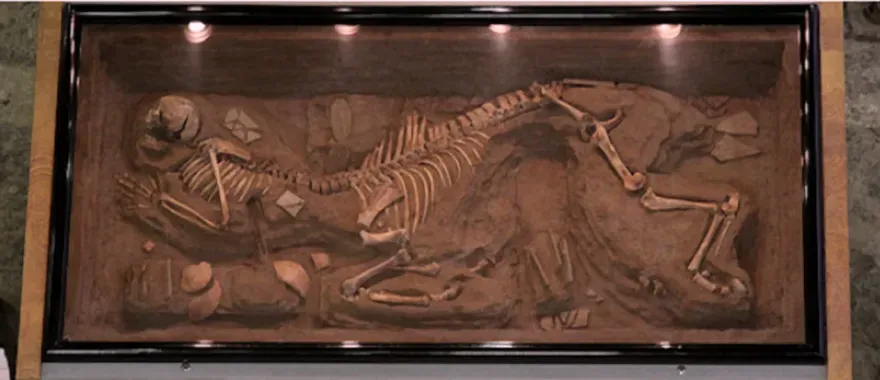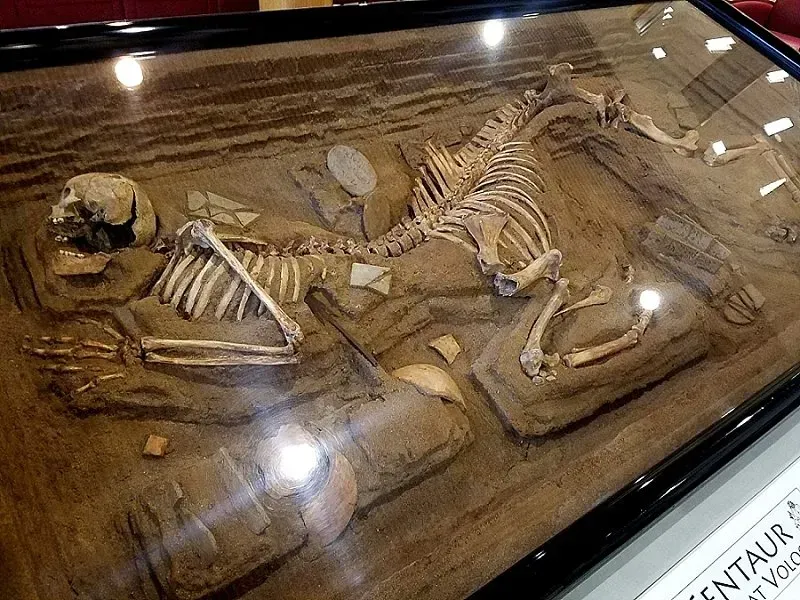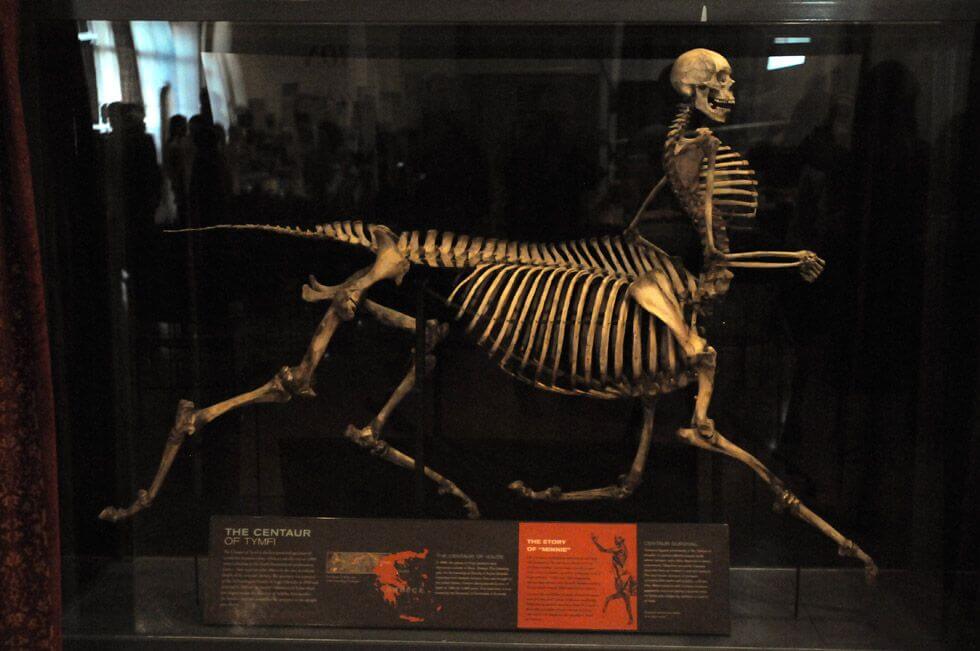
Greece: The Astonishing Discovery of A Half-Human, Half-Horse Skeleton In 1876
“Centaur, in Greek mythology, a race of creatures, part horse and part man, dwelling in the mountains of Thessaly and Arcadia.” – Britannica
In 1980, the archaeological Society of Argos Orestiko unearthed an intriguing discovery: one of three centaur burials, located just eight kilometres northeast of Volos, Greece. This remarkable find sparked curiosity and led to further exploration.
The centaur burial site gained attention when ‘The Centaur of Volos’ was showcased at the Madison Art Centre in Wisconsin that same year. The plaque accompanying the display highlighted its significance as one of the trio of centaur burials uncovered by the archaeological Society of Argos Orestiko.
What made this exhibition particularly fascinating was the revelation that the human and horse bones comprising the centaur were real. However, they weren’t naturally conjoined; instead, they were meticulously staged by a man named Bill Willers.
The Ancient Tech, Bizarre Ruins, And Strange Discoveries Scientists Won’t Explain
Bill Willers, an artist and biology professor at the University of Wisconsin-Oshkosh, crafted ‘The Centaur of Volos’ using authentic human bones and those of a Shetland pony. These bones, sourced from anatomical specimens, were carefully tea-stained to achieve a consistent appearance, adding to the exhibit’s authenticity.
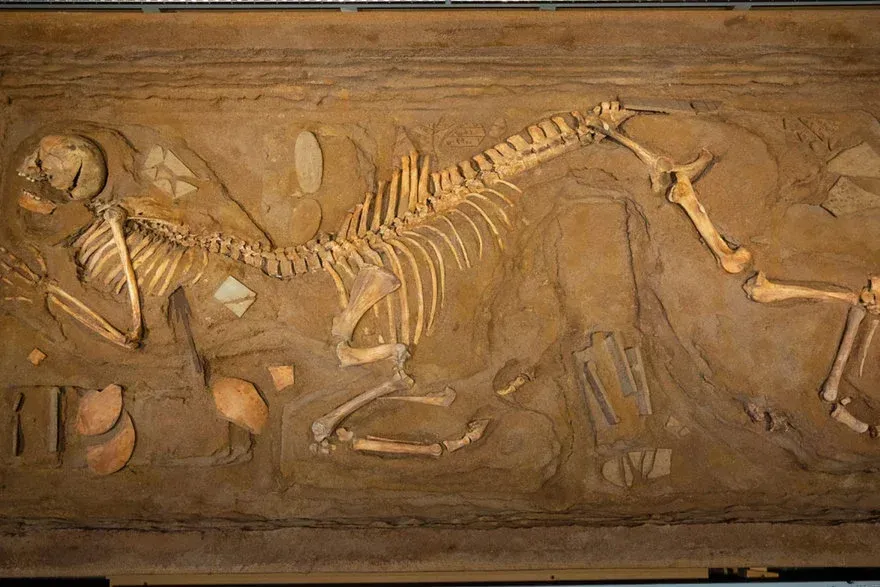
Following its debut, ‘The Centaur of Volos’ embarked on a tour of various colleges throughout the 1980s before finding a permanent home at the University of Tennessee-Knoxville’s Jack E. Reese Gallery in the Hodges Library.
In 2008, Bill Willers received a commission from Skulls Unlimited to create another centaur skeleton, known as ‘The Centaur of Tymfi.’ This unique piece, featuring zebra bones instead of horse bones, garnered attention when exhibited at Arizona’s International Wildlife Museum and later acquired by The Barnum Museum in Connecticut.
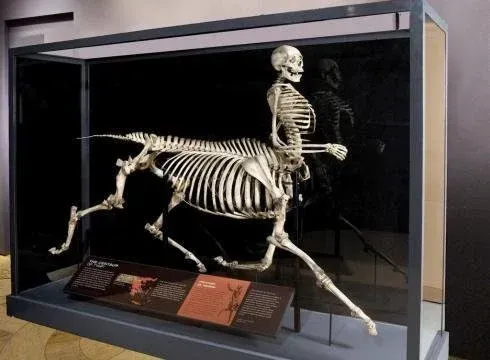
But why create and display such unusual exhibits? According to researcher Dolly Stolze, the purpose was to encourage critical thinking among students, urging them not to accept everything at face value, even from reputable sources like university exhibits.
Similarly, Bill Willers saw his creations as a test of the public’s willingness to believe the extraordinary, echoing the spirit of showman P.T. Barnum.
In today’s digital age, the allure of these fascinating exhibits remains strong. It’s easy to imagine sharing ‘The Centaur of Volos’ photos on social media and sparking widespread belief and fascination, just as in the days of old-time circuses and sideshows.
* * *
NEXT UP!
Hell Hound Found: Bones of An Ancient Huge Hound Found At Ruined Abbey
It roamed the countryside spreading death and terror – a giant, ferocious hell-hound with flaming eyes and savage claws.
For centuries, the beast that came to be known as Black Shuck struck fear into the hearts of all who crossed its path.
Just a single glimpse was enough to impart a fatal curse; the briefest encounter sufficient to suck the life from any hapless victim.
* * *
READ MORE: Batman Existed In Mesoamerican Mythology & His Name Was Camazotz
Read more on Trending Mythology News: Experts Claim That Moses Did Cross The Read Sea, After Finding The Egyptian Army Underwater
Telegram: Stay connected and get the latest updates by following us on Telegram!
We’d love to hear from you! If you have a comment about this article or if you have a tip for a future Collective Spark Story please let us know below in the comment section.

